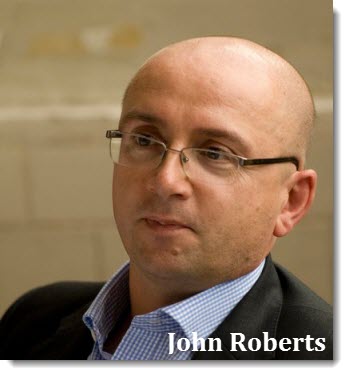The tipping point between effective leadership of change and the role of project managers

The clarity of corporate direction, the impact of project complexity and the effectiveness of project sponsorship significantly influence what project managers need to be able to cope with. What a good project manager looked like even 3 years ago is significantly different from today. In this article John Roberts identifies the top 10 capabilities project managers need under their belt.
Organisations of all shapes and sizes are intensely focused on deciding their key business initiatives for the year ahead. In the current economic and regulatory climate, few organisations have a supply of funding or resource to match demand and the need to prioritise is crucial. Despite this, our research has shown that few organisations do it well, leading to eye-watering amounts of wasted time and money and significant additional pressures on project managers.
In the past project sponsors could afford to spend minimal time on their projects as the nature of the change was much simpler. Senior executives could discuss issues with their teams as a ‘side’ activity with great success. Fast forward to today’s world, where change is significantly more complex, organisations are required to deliver change faster, better, cheaper and the involvement of senior executives / sponsors can make or break projects. However, findings from our recent survey revealed that 70% of sponsors have insufficient time to be appropriately involved and a staggering 75% have had no real training or coaching in how to be an effective sponsor or leader of change. This issue is further compounded by 90% of project managers and sponsors failing to communicate effectively with each other on a day-to-day basis.
Project managers need to help others perform well
I believe we are at the tipping point for project management and project managers – not only do organisations need to provide greater direction on their priorities and project sponsors need to be more active, but project managers need to increasingly ‘go over to the dark side’ and help business people shape projects and support them to execute their role more effectively.
Project managers need to recognise that what was ‘good’ five years ago is at best average in today’s world. They need to stand out from the crowd, lead by example and actively invest in developing their own capability. Project managers need as a minimum to be increasingly exceptional in the following 10 areas.
- Be able to account for the ‘mad world’ projects live in, in the way projects are approached and planned, i.e. assumptions management needs to be at the forefront of project management.
- Help key stakeholders quickly determine ‘what success looks like’ at the outset of a project and be less focused on just ‘getting on with it’.
- Use appropriate planning approaches to quickly demonstrate how outcomes will be achieved, i.e. right to left planning and transition state planning and be less reliant on using a more traditional left to right planning approach.
- Articulate the overall risk exposure of their project and help their key stakeholders make risk trade-offs rather than solely rely on producing a risk log.
- Produce appropriate project reporting/visibility that can be actively used by everyone involved in change to make timely decisions and be less focused on producing lengthy tomes of information that add minimal value.
- Effectively manage a complex web of third parties and spend less time on ‘marking their homework’.
- Actively engage with the business teams and key stakeholders to ensure appropriate buy-in and engagement in the project.
- Establish a common view of the overall health of the project so that everyone has a shared view of what’s important and what priorities need to be addressed at this stage in the lifecycle, and follow a governance process less blindly.
- Recognise what you are not so good at and proactively ask for help – it is a sign of strength, not weakness.
- Talk a ‘language of change’ that is understood by different players.
Successful change programmes require everyone to change
Successfully delivering change in today’s world requires everyone involved in change – including senior executives, support functions, operations and the traditional change community – to work more effectively together, focus on what’s important, ask the right questions and use a common language that all disciplines can understand and use.
The main driver of this should be the organisation itself but let’s not wait for this to happen – why don’t project managers manage their own destiny and drive the change agenda?
About the author: John Roberts is the director of project and
